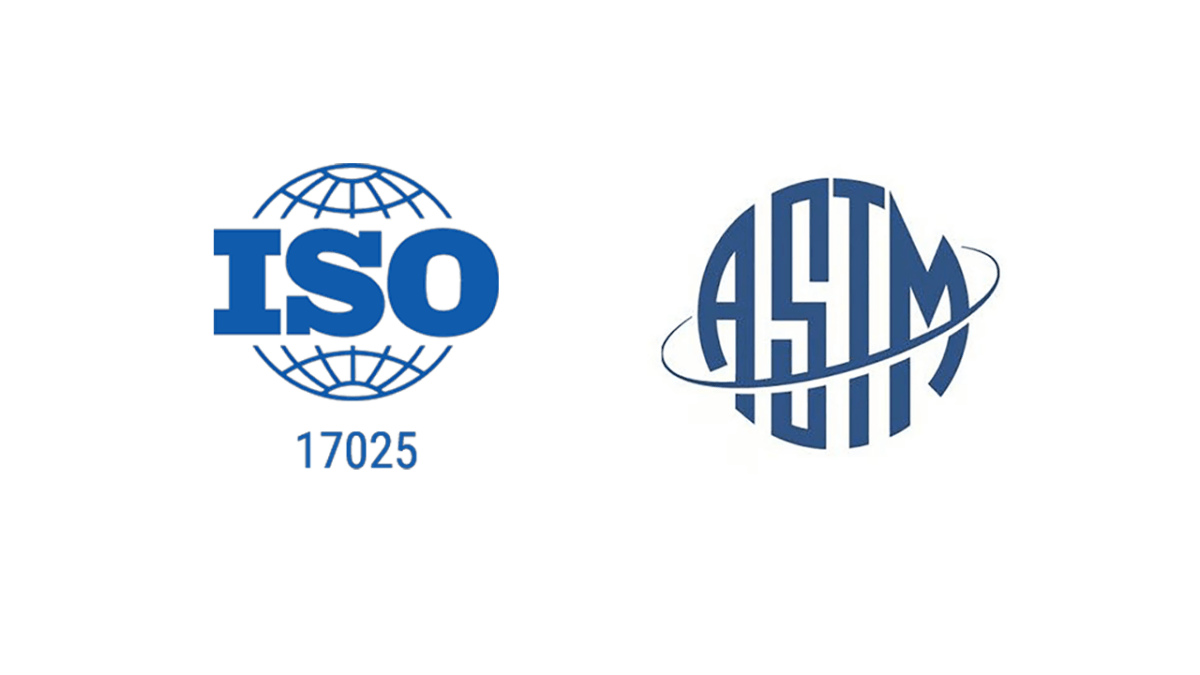Blog
ISO 17025 vs ASTM: Power Guide to Material Testing Compliance in 2025
ISO 17025 vs ASTM: Ultimate 2025 Guide to Material Testing Compliance
In the world of material testing, precision, repeatability, and traceability are non-negotiable. Whether you’re in aerospace, automotive, or industrial manufacturing, compliance with testing standards is not just good practice—it’s a necessity. Two major players dominate this space: ISO 17025 vs ASTM. While they may appear similar, they serve distinct goals within quality assurance.
Understanding the difference between these frameworks can transform the way your laboratory or service center operates.
What is ISO 17025?
ISO/IEC 17025 is an international standard that defines general requirements for the competence of testing and calibration laboratories. First published in 1999 and most recently updated in 2017, it is governed by the International Organization for Standardization (ISO) and the International Electrotechnical Commission (IEC).
Key Elements of ISO 17025 for Testing and Calibration Labs
- Impartiality and confidentiality
- Structural requirements such as roles and responsibilities
- Resource requirements like personnel, facilities, and equipment
- Process requirements including sample handling and test methods
- Management system requirements for continual improvement
Meeting these requirements ensures valid, traceable, and credible results, which are critical for client and regulatory trust.
Why ISO 17025 Matters for Service Providers
For service providers like Teur Pro Group, ISO 17025 compliance builds trust with clients, regulators, and auditors. It supports high-stakes environments where repeatability, traceability, and technical accuracy are vital.
What is ASTM?
ASTM International, formerly the American Society for Testing and Materials, develops globally recognized voluntary consensus standards. Established in 1898, ASTM standards offer specific testing procedures across a broad range of industries and materials.
ASTM’s Role in Material Testing
ASTM standards ensure tests are:
- Clearly defined
- Repeatable across labs
- Transparent in execution and reporting
Common ASTM Standards in Labs
- ASTM E8 – Tension Testing of Metallic Materials
- ASTM D638 – Tensile Properties of Plastics
- ASTM D695 – Compressive Strength of Rigid Plastics
- ASTM D412 – Vulcanized Rubber and Thermoplastic Elastomers
ISO 17025 vs ASTM: Key Differences
Purpose and Scope
- ISO 17025: Focuses on lab quality and competence
- ASTM: Focuses on test methodology and procedures
Compliance vs Methodology
- ISO 17025: Governs how tests are managed and validated
- ASTM: Specifies how to perform each test
Accreditation
- ISO 17025: Used for lab accreditation
- ASTM: Used in test procedures, not a certification body
How They Work Together
In many industries, ISO 17025-accredited labs use ASTM test methods. This synergy ensures both process integrity and technical precision.
Why Your Lab Needs Both ISO 17025 and ASTM
Boost Credibility
Clients and auditors trust both standards. Their combination builds strong industry reputation.
Improve Testing Accuracy
- ASTM = Technical accuracy
- ISO 17025 = System reliability
Expand Market Access
Meet international client demands and pass regulatory inspections with ease.
Case Study: Teur Pro Group’s Compliance Alignment
Teur Pro Group has evolved from product sales to a service-focused approach—offering maintenance, calibration, repairs, and custom parts. By aligning these with ISO 17025, the company ensures traceable and credible outcomes.
Meanwhile, ASTM-based procedures guarantee consistency, especially in high-stakes sectors like aerospace and automotive, where failure is not an option.
Conclusion: ISO 17025 vs ASTM — Stronger Together
For modern labs and service providers, ISO 17025 vs ASTM is not a choice—it’s a partnership. Each plays a vital role in ensuring compliance, reliability, and customer satisfaction. Together, they form a blueprint for lab excellence in 2025 and beyond.
Need Help with Compliance?
Teur Pro Group is ready to support your lab with ISO 17025 accreditation, ASTM-compliant procedures, and precision-driven calibration services.
Contact us today to schedule your calibration and keep your testing equipment in peak condition! Teur Pro Group Contact
Follow us on LinkedIn for updates and industry insights! Teur Pro Group LinkedIn

